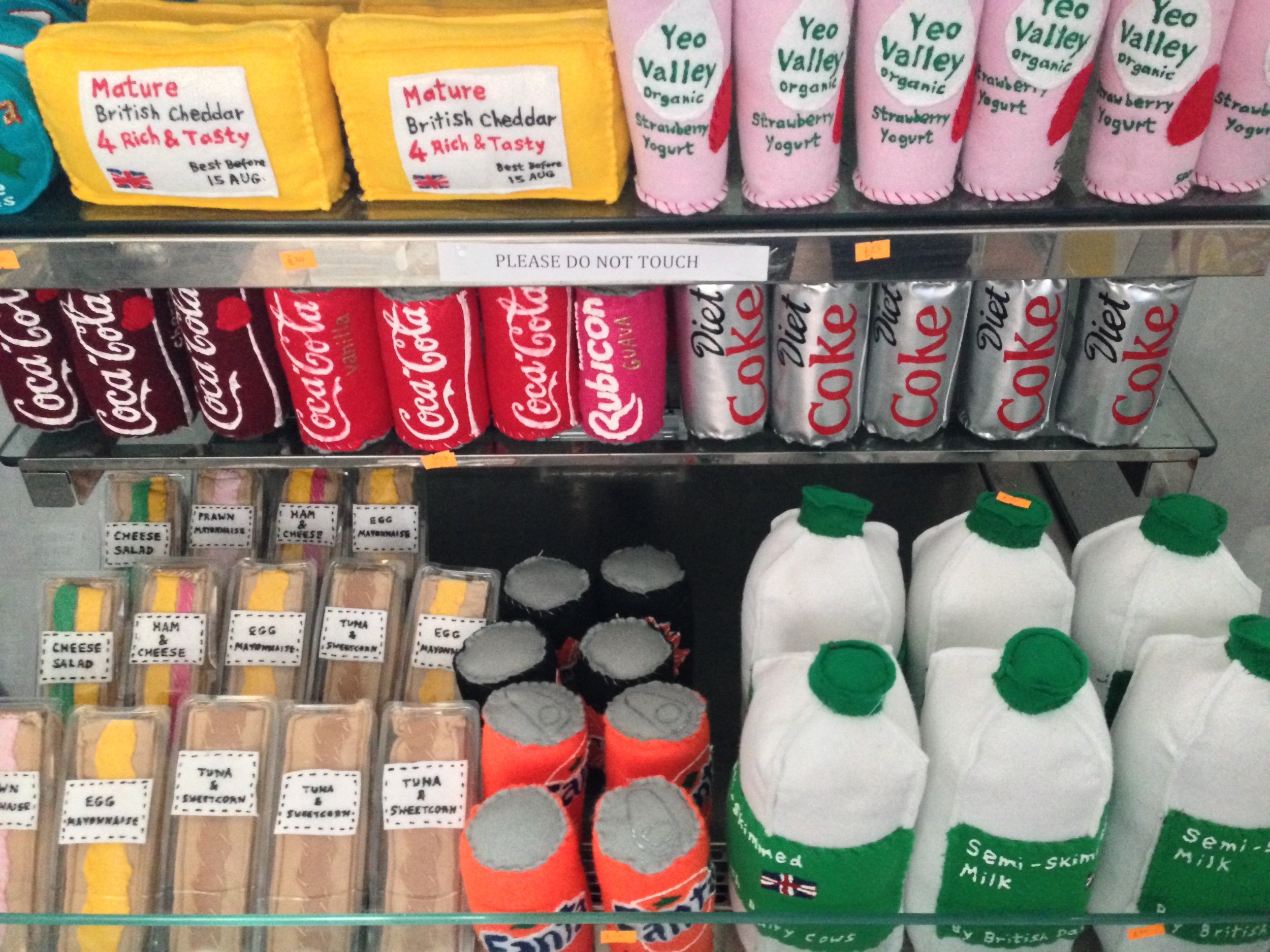The Cornershop (2014)
Lucy Sparrow
The Cornershop (2014)
4,000 felt items, hand stitched
Various sizes and dimensions
Temporary pop-up in Bethnal Green
Obsessions are strange, potentially dangerous, and occasionally wonderful things. Especially when they’re swirling through the mind of an artist. Cézanne had apples. Yayoi Kusama, polka dots. British artist Lucy Sparrow loves felt.
In 2014 Lucy debuted The Cornershop. If you know what a cornershop is, then you know exactly what you’d find inside. With one catch. All 4,000 items — from the semi-skimmed milk to the broadsheet newspapers to the toothpaste and tobacco — were hand stitched out of felt. I went, and it was utterly bonkers.
Anyone who’s ever had to shop in a grocery or pharmacy while on holiday will immediately understand the feeling of walking round The Cornershop. Everything was familiar, yet foreign. Despite oversized stitches and an unmistakable puffiness in some overstuffed stock, it still wasn’t always obvious how much of the shop was art. I actually passed by the top-loading freezer at least three times before thinking to look inside, only to notice an entire range of “frozen” felt products. (Not actually frozen.)
Partly that’s because each item had been stripped down to the essential visual elements necessary to convey what it was. The core colours… the shape of the logo… the key marketing words. If you were to squint as you walked through the shop you honestly couldn’t tell that these products weren’t real. The meticulous attention to detail was astounding. But imitation alone is just flattery, and The Cornershop had one extra important aspect that made it an instant success: Charm.
It’s incredibly disarming to see banal, utilitarian products turned into something soft and fuzzy. A large part of the fun of walking round and round the tiny shop was trying to find the things you had at home. Domestos? Doritos? Fabric cans of SPAM? Yes, please! Better yet… you could take these products home. Eventually.
In the decade since The Cornershop, Sparrow has skilled up, scaled up and sorted the supply chain issues. Recent installations displayed tens of thousands of replica felt items that you’d simply pick off the rack and purchase on your way out. Back in 2014, however, 4,000 items was all she had. So eager shoppers were given clipboards, pens and a paper receipt that they filled out themselves. It was an intentionally old school approach that absolutely added to the charm.
About a month after the shop closed, the products I’d ordered arrived by post. They’re not much different than the works she’s making today, but like a teenager who hasn’t outgrown the baby fat you can easily identify them as early works. They also didn’t cost as much as they do now, although her prices remain reasonable. At least as far as art goes. That’s another reason why I love her work so much: it’s accessible to everyone not just to see, but to buy.
Lucy continues to outdo herself. Recent installations — like The Bourdon Street Chemist and her pop-up ice cream truck that Frieze tried to evict — continue to surprise and delight whether or not you know her work. But I’ll never forget that first time I wandered round The Cornershop wondering who the hell would be bonkers enough to recreate so much stuff out of felt, and hoping that it wouldn’t be the last time that she did.
That’s why I like it.
It was the only just the beginning.
Additional reading:
Follow Lucy on Instagram at @sewyoursoul
Previously, on Why I Like It:
Dec — Seurat & Pointillism
Nov — Lay Down Dream (2007), Jessica Anne Schwartz
Oct — Family of Robot (1986), Nam June Paik









